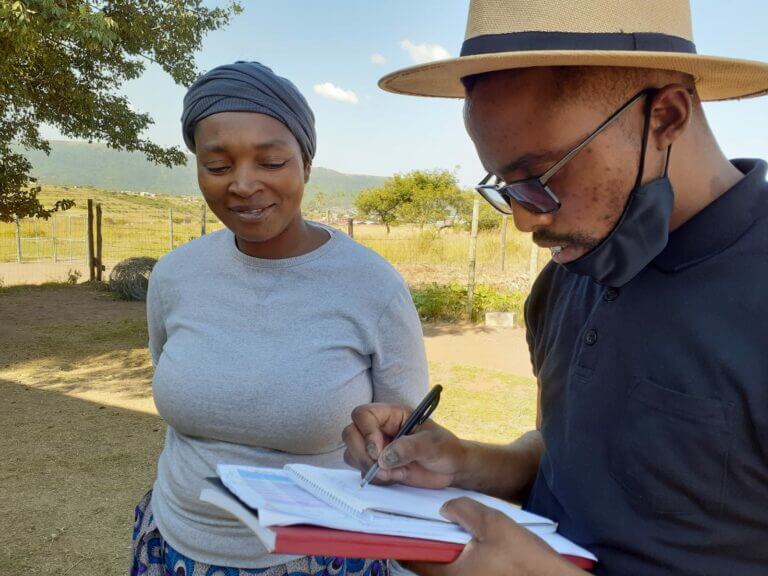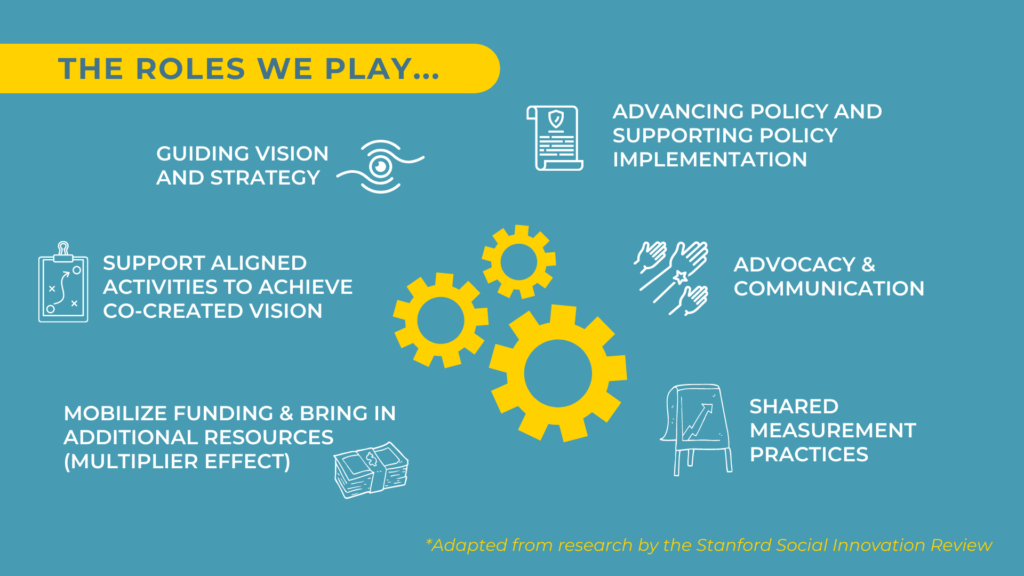Our role as a backbone organisation
01 Dec 2022

Since 2019, the DO MORE FOUNDATION (founded by RCL Foods) has come to formally identify itself as a Backbone Support Organisation within a Collective Impact framework. We believe in the importance of working in collaborative partnerships with key public and private stakeholders to meet the needs of young children as set out in South Africa’s National Integrated Early Childhood Development Policy. As such, the Foundation identifies its role as one that enables partnerships, effective collaboration, mobilisation of resources and policy implementation focused on improving the environment for the optimal development of young children.
We know that BIG problems require BIG solutions – the collective impact approach is most relevant and effective when the problems addressed are complex “adaptive” social problems (such as those facing SA’s young children) and where the complete answer is not known. It is clear that no single entity has the mandate or resources to bring about the necessary change for the young children in our country, we have to work together in a coordinated and intentional manner.
“Shifting from isolated impact to collective impact is not merely a matter of encouraging more collaboration or public-private partnerships. It requires a systemic approach to social impact that focuses on the relationships between organisations and the progress toward shared objectives. And it requires the creation of a new set of non-profit management organisations that have the skills and resources to assemble and coordinate the specific elements necessary for collective action to succeed”. - Kramer and Winter, 2011

While collaboration is central to collective impact, it goes beyond that with a “centralised infrastructure, a dedicated staff, and a structured process that leads to a common agenda, shared measurement, continuous communication, and mutually reinforcing activities among all participants. The common theme is that large-scale social change comes from better cross-sector coordination rather than from the isolated intervention of individual organisations” - Kramer and Winter, 2011
Whilst the Foundation was not initially set up expressly as a backbone organisation, our role as such has became very evident after a few years.
- A core component of our backbone organisation role is a dedicated staff (what we call “implementing teams”), separate from the participating organisations, who can plan, manage, and support the initiative through ongoing facilitation, technology and communications support, data collection and reporting, and handling the myriad of logistical and administrative details needed for the initiative to function smoothly.
- Key to the development of our watertight implementation model in Nkomazi (the Leave No Young Child Behind model), which we have been able to scale quite quickly, includes the formation of a Provincial Steering Committee, Functional Technical Team made of all ECD stakeholders at sub district level and Young Child Forums attended by ECD programme representatives.
- By targeting our interventions at both community and national level and placing children at the centre of our programmes and initiatives, we are able to respond to the immediate needs of communities with the intention to effect systemic change and achieve large scale and sustainable impact.
- Our communication channels and strategies have been essential to bringing in new partners and mobilising local stakeholders, and allowing them to “tap into the big picture work” using their own ideas and offerings (monetary, products, services etc…).
- We aim to embody the principles of adaptive leadership, focus people’s attention and create a sense of urgency for issues facing the children we serve. We also have the skill to apply pressure to stakeholders without overwhelming them, the competence to frame issues in a way that presents opportunities as well as difficulties, and the strength to mediate conflict among stakeholders. All of which have been highlighted by Kramer and Winer as successful components of a backbone organisation structure.
By acting as a catalyst for the public, private and NGO sectors to come together under one vision and guiding the combined activities, we are proving how backbone organisation structures are hugely successful in effecting change for young children and the communities in which they live. The Foundation is committed to playing a long term role in supporting sustainable and systemic change. We are able to play this key role in the communities in which we work thanks to the support of RCL Foods (our founder) as well as Rainbow and Vector logistics (part of RCL FOODS) – our key corporate partners who help us drive significant impact at community level.